Institute of Ecology and Environmental Studies Obafemi Awolowo University, Ile-Ife.
GENERAL OVERVIEW
It is generally acknowledged that environment plays a crucial role in the evolution and development of societies. Indeed experience all over the world has shown that human societies every where must face ecological problems which are peculiar to their own setting. Little wonder therefore that governments through the ages have concerned themselves with finding out how best man, can utilize their environments with a view to bringing about significant and beneficial changes. It is in recognition of this need that the Obafemi Awolowo University established in July 1982 an institute of Ecology and Environmental Studies as an autonomous multidisciplinary institute to tackle ecological problems of development.
The institute is thus concerned with the study of man and nature as a study of those ecological problems implied in the development of human societies.
ORGANIZATIONAL STRUCTURES
In order to be able to accomplish its task as outlined in both its objectives and programmes, the Institute has provision for four divisions as follows:
a). Resources Utilization Division: This Division will:
- explore new sources of environmental resources in addition to providing data on the available resources and how they can be utilized on a sustained yield basis;
- formulate proposals to prevent environmental problems in the utilization of agricultural resources;
- and conduct research and carry out such work that will provide an ecological basis for the formulation of long term resources use policy.
(b) Ecosystem Structure and Management Division: This Division will
- provide data on the diversity, functioning and quantities of living organism in our ecosystems;
- survey impacts of resource utilization on environment and the regional impacts of food production system on the environment;
- determine ecological succession; and
- provide guidelines on research work for resource conservation policy and environmental management in general.
(c) Pest and Pollution Control Division: This Division will
- investigate the causes and types of pest and pollution affecting human resources and welfare;
- study the short and long term effects of pest and environmental pollution and contamination from all sources namely: Oil Pollution as well as residues of pesticides (insecticides, fungicides, nematocides, etc.), by-products of chemical and factory production;
- formulate proposals for dealing effectively with these problems of pollution and pests; and
- carry out research to guide material policies related to effluent/waste management, their quality control, determination of effluents, residues, and waste in general and consideration of economic possibility of cycling of materials.
(d) Remote Sensing Applications/ GIS Division : This Division will pursue the
following objectives:
- Acquisition, archiving and dissemination of remotely-sensed data on various issues;
- Undertaking research in areas of its assignment as given in the objectives and programmes of the institute – paragraphs two and three above:
- Carrying out investigations in collaboration with other Departments and Faculties/Units in the University; and
- Promotion of the use of remotely-sensed data by creating awareness among potential users through seminars/Workshops; symposia and training courses.

Prof. (Mrs.) A. A. Okoya
2022 – till date
Director
Past Directors
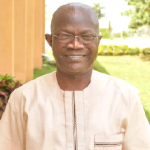
Prof. M.B. Adewole
2020 – 2022
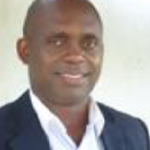
Prof. O. O. Awotoye
2012 – 2017
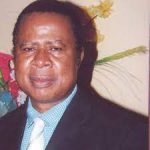
Prof. I. E. Ofoezie
2017 – 2020
2010 – 2012
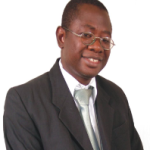
Prof. A. T. Salami
2006 – 2010
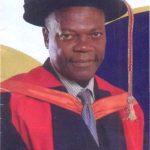
Prof. A. O. Isichei
2003 – 2006
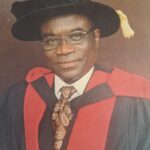
Prof. S. O. Asaolu
1997 – 2003
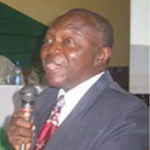
Prof. E. E. Balogun
1992 – 1997
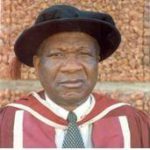
Prof. A. M. A. Imevbore
1982 – 1992
